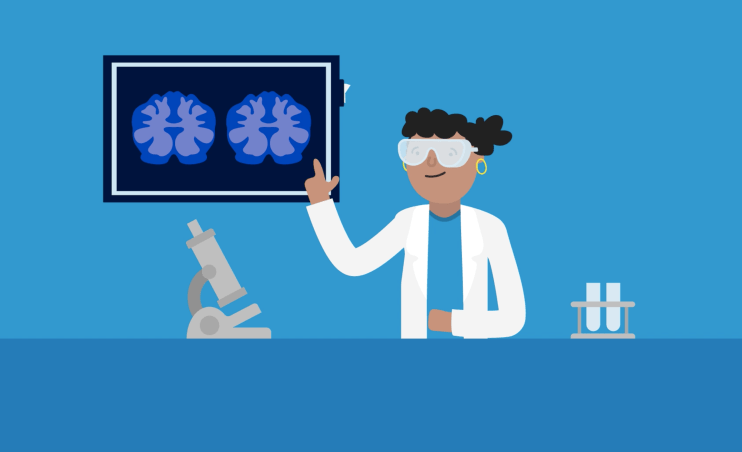The 8-Second Trick For Drug Rehabilitation
The 8-Second Trick For Drug Rehabilitation
Blog Article
A Biased View of Drug Rehabilitation
Table of ContentsWhat Does Drug Rehabilitation Do?Fascination About Drug RehabilitationA Biased View of Drug RehabilitationDrug Rehabilitation for DummiesAn Unbiased View of Drug Rehabilitation
This involves addressing the whole person to make certain that every one of the underlying causes and impacts of the addiction are effectively taken care of and dealt with. This offers individuals the tools they need for a full go back to a pleased, healthy, substance-free life. Medicine addiction "therapy" is a little a misleading term it indicates that people with addictions are "all far better" after they have actually obtained some form of treatment.Even people with years of effective recovery need to remain conscious of their possibility for regression, and they must utilize the tools they discovered in treatment to stop it. The word "recovery" additionally suggests that a person is being corrected after misbehaving, which is constant with society's stigma regarding addiction. Drug Rehabilitation. Component of the healing process is for individuals with addictions, and their families, to find out that dependency is an issue of biology and not principles
Besides, transitioning from physical and psychological dependency to a healthy and balanced and pleased way of living is a big modification. It is essential that the steps to drug rehabilitation be properly attended to during the medicine rehabilitation procedure. There are four stages of dependency recuperation: Dependency evaluation is an especially critical component of the rehab process.
This belongs to the underlying psychology of dependency, and it enhanced by anxieties of arrest for ownership and judgment from friends and family. The assessment procedure calls for acquiring trust fund and appearing that secretive nature. The private requirements to recognize which materials were made use of and the level of their material usage.
Little Known Questions About Drug Rehabilitation.

For lots of people with addictions, anxiety of withdrawal is a significant obstacle to escaping their addiction, and that fear keeps them from also attempting. Fortunately, withdrawal and medication detoxification do not need to be a terrible experience. By joining a clinical detox program, people can make it through the experience securely and pleasantly.
For most people with material addiction, their material use is no longer regarding getting high. Medication rehabilitation is the procedure where the deep issues around the addiction are recognized and dealt with.
What Does Drug Rehabilitation Mean?
Instead, it can be said that rehab is the process of exploration, while what happens later is recuperation. The addicted mind usually begins to believe specifically after a time period in abstinence that it is alright to try drinking or making use of materials once again. This seldom functions, and the huge bulk of people that try drinking or using drugs again will rapidly finish up where they were before.

Sober living residences are a particularly effective method to aftercare when a person is released from rehab. Individuals and their households should discuss these options with their counselors while still in rehabilitation. There are various sorts of treatment for dependency, based on the degree of treatment given. When selecting the degree of treatment, the choice must be based upon what will provide the specific the most effective chance of success in recovery not on what the specific wishes to do.
This is a negative mix, as it drives my website lots of people to believe that they can quit making use of medicines or drinking by themselves. Therefore, they may hesitate to see and confess that they require a greater degree of care, such as inpatient rehab. Detoxing from a compound is not the like treatment for material addiction.
The Greatest Guide To Drug Rehabilitation
Throughout the process of medication detox, people's minds are jumbled and they feel physically and emotionally unwell. They are not receptive to any type of sort of therapy or therapy till their minds clear and they are feeling much better. Although medical detox makes the procedure a lot easier, it is best to initial focus on surviving the whole detox process before taking more steps. informative post
Like inpatient therapy, domestic treatment provides the therapeutic impact of getting rid of people from their useless way of living and environment and placing them in safe, healthy surroundings. This allows them to reorient their lives and thought processes while concentrating on distraction-free healing.
Individuals get therapeutic services on-site throughout the day, yet go home or to a sober living center at evening. The intensity of the daytime treatment will depend on individual needs and the programs available at the outpatient facility. Many people with significant dependency will likely have better outcomes in inpatient treatment and rehabilitation.
The Facts About Drug Rehabilitation Uncovered
Lasting domestic therapy programs frequently use a therapeutic approach referred to as the therapeutic community (TC). This is a strategy to re-socializing individuals whose addiction has seriously impacted their ability to suit culture. These consist of people with serious criminal habits, people who are homeless, teenagers and individuals with major psychological health and wellness conditions.
Report this page